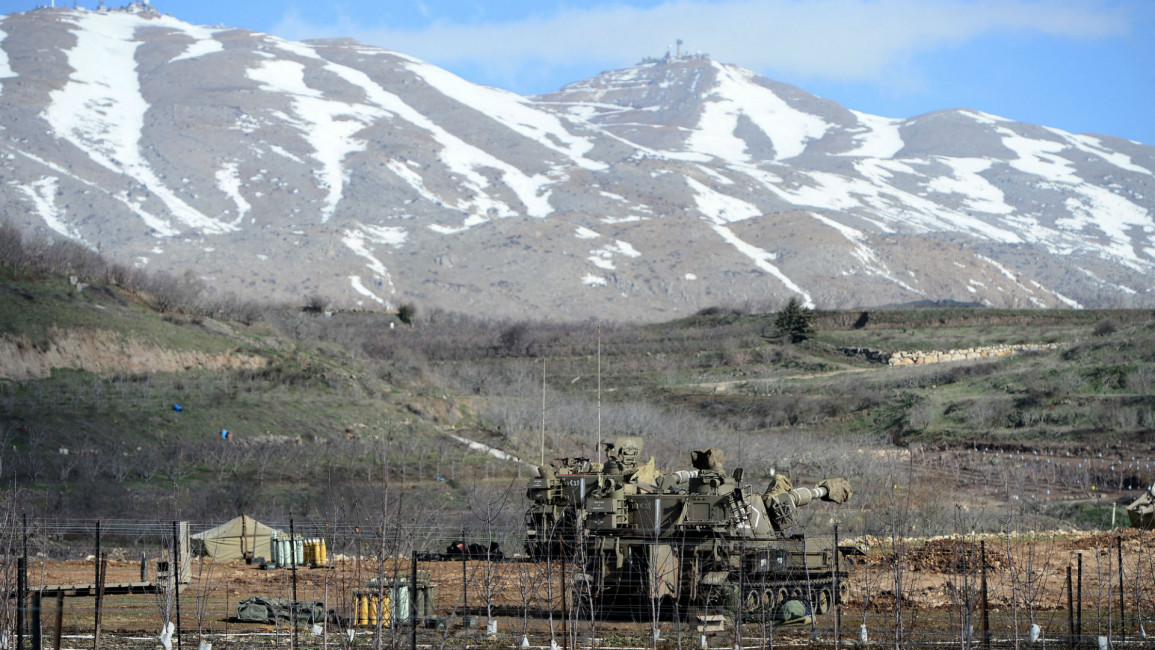
Time for Hizballah and Israel to put guns away
The latest round of "conflict" between Israel and Hizballah has ended with each side clarifying its priorities. It is clear that neither side is interested in escalation.
Militarily, the situation was allowed to calm down, and clarifications, announcements and messages were exchanged via the decision-making centres in Washington and Tehran.
Each side was left to explain to its constituents how things had developed and why they ended the way they did. What is important is that there was no decision in Israel to go to war with Lebanon, or on the Golan front, and no decision in Lebanon to go to war with Israel. However, the recent incidents have reframed the conflicts in the region, and there are some indications that this will change the terms of any future conflict.
| Daggers drawn, but Israel and Hizballah likely prefer restraint. Read more. |
| What is important is that no decision was made in Israel to go to war with Lebanon, and no decision in Lebanon to go to war with Israel. |
There will not be a new front for the resistance. For Hizballah, another war against Israel is more than a matter of Hizballah committing its energies and resources; another war against Israel may have political repercussions that could affect the Assad regime's survival and dismantle a key link in Tehran's regional alliances.
An indication of this was the discretion with which Hizballah chose to conduct itself against Israel in Shebaa, as it calculated that any response from the Golan Heights would result in an Israeli attack against the large Syrian military instillations in Qatana and Saasaa, according to leaks by pro-Iranian media.
These military instillations are the last bulwark protecting Damascus from the rebels in the south, and in an interview with Foreign Policy, Assad himself denied the desire to initiate any military action against Israel on the Golan front, saying that his regime would continue to respect the ceasefire signed in 1974.
There is no united resistance front, as Hizballah's leader Hassan Nasrallah threatened in a recent interview. Israel wanted to test this threat, which it did after the Quneitra attack by attacking the Syrian army's 90th Brigade in the north of Quneitra only a few days later. The idea of a unified front from the Galilee to the Golan Heights and Southern Lebanon promoted by the resistance is effectively dead.
An end to the resistance?
There will not be a war with Israel in Lebanon as long as the Syria conflict continues. This seems to be a conscious decision taken to avoid chaos in Lebanon, given current sectarian tension in the region and the large number of Syrian refugees Lebanon is sheltering.
| It is time for all sides to put the guns away and return to their trenches. |
Hizballah has adhered to the rules of engagement even though the situation has been very tense. Hizballah's choice of Shebaa as a place to stage its response indicates its concern with the rules of engagement with Israel, as its operations in this disputed location do not breach UN resolution 1701, sending a strong message that Hizballah does not wish to escalate the situation.
It simply wants to conduct a limited response to Israel's attack to save face in front of its supporters. Furthermore, the name of the unit that carried out the Shebaa attack "the Quneitra Martyrs Group" indicates that Hizballah wanted to separate this operation from the general conflict with Israel.
It was noticeable that Hizballah's response to Israel dissipated in a flurry of messages. The US call for both sides to show restraint after the Shebaa attack seemed to say that it was time for calm, and this was supplemented by Hizballah's clear message to Israel that it was not interested in escalation, followed by Israel's announcement the operation had come to an end.
It is time for all sides to put the guns away and return to their trenches. However, this time they must do so without fantasies of decisive and earth- shattering future victories. The facts will soon expose these fantasies as propaganda. The reality is that 2006 marked the last of the wars between Israel and Hizballah. That era has come to an end.
Opinions expressed in this article remain those of the author and do not necessarily reflect the opinions of al-Araby al-Jadeed, its editorial board or staff.
This is an edited translation from our Arabic website.




